Video
Transcript of the Conversation
Piyush: [00:00:00] The digital agenda is all about data analytics, cloud, AI/ML, and emergent tech. That are transforming not only companies, but also entire industries and even our lives. Hi, my name is Piyush Malik. A curious mind who wears and juggles multiple hats. As an engineer, a management consultant practitioner, a builder, a thought leader, entrepreneur, and a C-suite executive.
Piyush: I have been in the industry helping organizations realize and navigate the value of data analytics, applied ai, ml and emerging tech. I have created strategies and transformation programs that helps them [00:01:00] compete with the digital native.
Anyone who has been in the business intelligence and warehousing industry for as long as I have, and more specifically in the management consulting firms, PW or PWC or any of the competing big five management consulting firms, could not have missed the “Godfather of BI consulting”
In today's episode of the Digital Agenda, We would be talking to that individual. His name is Mike Shroeck.
Starting his career with Pricewaterhouse in the early days of Big eight management consulting. After earning a degree in accounting, Mike rapidly rose through the consulting ranks to be named a partner, and subsequently becoming an indispensable part of PW and later PWC leadership teams.
[00:02:00] When I first met Mike in 1998, He was the global leader and partner in charge of the BI and data housing practice in his career spanning over four decades with PW P W C and IBM m Mike started and led worldwide consulting practices in the areas of information management and analytics. He has inspired thousands of young consulting staff like me, as well as clients across the globe with his impressive style, endearing personality, Deep subject matter expertise and, and “always do the right thing for our people and clients” attitude. Retiring as a partner, vice president, and leader in the business analytics and optimization group at IBM Global Business Services, he has a proven track record in business intelligence, performance management and analytics.
Mike has been a pioneer. An industry thought leader, authoring several articles on those topics, as well as co-authored a book on enterprise information architecture. For a long time, Mike was a featured speaker at many industry conferences. In major seminars and has been frequently quoted in leading business and technical publications, despite being twice named as one of the world's top 25 most influential consultants by Consulting Magazine and a distinguished engineer by IBM for its technical achievements and leadership.
He remains very humble, a family man with five children and seven grandchildren. Additionally, he currently dedicates his time and resources to giving back through his involvement with several local nonprofit organizations. Lastly, Mike is also an avid runner having completed 30 marathons over the course of his career.
Let's go and meet Mike.
[00:04:00]
Piyush: Welcome, Mike. Welcome to the Digital Agenda!
Guys meet Mike Shroeck. He has been my mentor for almost two decades, and the first time I heard about him, he was on the cover of “DM Review” Magazine, where he was shown as the marathon man. Runs Marathon & runs the management consulting firm - A division of a management consulting firm, Pricewaterhouse at that time. And since then, our association has grown. So Mike, welcome and please introduce yourselves. And who is the real Mike Shroeck.
Mike: Thanks, Piyush. It's great talking to you again. I appreciate the opportunity to be on today. Who is the real Mike? You could probably answer that and as well as anybody, but I guess professionally people might recognize me as the person who started at the time.
Mike: We refer to it as data warehousing, you know, now data management analytics. [00:05:00] At Pricewaterhouse back in the early nineties. And that evolved to eventually combining that practice when we merged with Coopers and Laybrand. And then in the early two thousands, as IBM acquired our consulting business from PwC, I was able to bring that together and throughout that entire process and timeframe.
Mike: I'm just proud of the fact that, that we continued to be recognized as the largest and leading data warehousing consulting firm in the industry. So it was a, great run. Personally I consider myself a, husband a father to our five children and stepchildren grandfather to seven grandchildren.
And a friend. And, and someone that I would like people to think of, of me, I guess, as. “he is a nice guy who cares about people and always tries to do the right thing”
Piyush: Absolutely! And I can testify to that…a great mentor and somebody who people can confide in and get great advice any point of time.
So thank you for introducing yourselves [00:06:00] in a candid manner. Mike, now you had a pivot in your career from being. Chartered Accountant in, an accountancy firm Coopers and Lybrand to the management consulting in PW & PWC. So there were pivotal moments where you had to shift and the uncharted territory that you entered with the C R M practice or the BI practice and then the BAO practice all through your career between these three, four different firms.But it seems like it's the continuation of the same career, right. From Coopers and Lybrand to pwc to I B M. And so, so walk us through how difficult it was for you to pivot through all these moments.
Mike: Yeah. Thanks for saying, and I guess going back a little bit, I've always had an interest in accounting. And so I majored in accountancy. I got a master's degree in finance. And then when I joined PriceWaterhouse, back in 1981, I guess it was that I was interested in accounting, but it was more how do you apply it to, [00:07:00] business. And so I joined the consulting firm side of, Pricewaterhouse at the time as opposed to audit or tax and and got involved with implementing financial systems.
So I leveraged my accounting background into financial systems. We had our. Financial system at the time that ran on a mid-range called FM 80 that, that some folks from PW had developed and that evolved into his ERP started taking hold and at the time- I'm dating myself there, but there was McCormick and Dodge.
There was MSA. And then we started a third practice called Water Walker Interactive, which was actually located out near you in, San Francisco. And the key differentiator for Walker Interactive was the fact that whereas at MSA we used flat Files, Walker Interactive was the first financial accounting system that leveraged DB2 relational database system.
And kinda the key there was it made it a lot (of difference.) The information was a lot more accessible. And so again, the idea was you do the accounting system, but the real value is how do you get the information out and analyze it and, and so on. And so that was really the, the start of it. And then in the early nineties Tom Byer, who at that time was running the Management Consulting services for Price Waterhouse said, “You know, Shreock, why don't you take a look at this thing called data warehousing”
And so I said, “ Sure, I'd love to do that.”
I had just made Partner. And so we invited Bill Inmon , To join two other PW consultants in Bethesda. That was our technology center. And Bill, who was really as I consider “the father of data warehousing”, joined us in Bethesda. Spent a day with us with his foils as only Bill can do, and still uses those and kind of got us excited about data warehousing.
And so we jumped in with, with both feet. We started hiring some individuals. We transferred some individuals from other segments of [the practice that had technology skills. We built some tech training programs to allow us to train more individual. . We developed some relationships with some of the key vendors ETL at the time, some of the data management vendors, some of the reporting vendors, and kind of build an ecosystem.
But then the other key thing is, is we landed a couple big clients at the outset. Ford Credit was one of them in Dearborn, Michigan. And also State Farm Insurance. Mm-hmm. And that really just allowed us to really take off running. And at the time we were the only dedicated, you know, data warehousing or data management services practice in the industry.
And so I think we've had a headstart on everybody else. And then it kind of evolved as you alluded to as Coopers and Lybrand and Pricewaterhouse merged they were nice enough to ask me to bring those firms together. Coopers had a nice data management practice and so we were able to leverage those skills and those individuals and those client relationships.
And continue to grow, which extended, you know, our lead in terms of the size of our practice. Also added some global capabilities. And then in the early two thousands IBM acquired the complete PWC consulting services practice. And Ginni Rometti who at the time ran services for IBM was nice enough to ask me to lead the Integration of what at that time were the two largest data management practices in the world. And that allowed us to take the practice to a whole another level. And we just had a great run up until, you know, the point that I retired in 2015 and I think we had close to over 16,000 dedicated consultants located in every market around the world. Just a, great team and, I was just very fortunate to have an opportunity to be a part of it.
Piyush: Yeah, absolutely. You had a terrific run out there, Mike, and it gave me (as you were speaking) nostalgia because I was just talking to Bill Inmon a few days ago and you know, he had certain interesting things to say about the industry as well. But now I get the full picture because when I saw you, I was being interviewed by PW and you were on that cover of that magazine “DM review” that I was talking about, and I was asked to come and meet you and few other sap/ E R P leaders in San Francisco at a hotel, and I hadn't officially joined PW
My Visa took some time and by the time the Visa and all those things happened, it had become PWC. So since then, of course, I've had a great fortune to be associated with you and to be mentored by you, so thank you very much for that.
Now, help us understand what specific things you did to get onto the world's 25 most influential consultants list. Not once, but twice , in my recollection. So please help us understand that.
Mike: Yeah, that, that was quite an honor and the first time. Was in the mid nineties, and I think it was a recognition of, again, the success we had at Pricewaterhouse at the time of building, you know, again, the industry's first dedicated data management and analytics services practice.
And I think that that really was the impetus for, for the first honor the second time they were nice enough to award me that recognition. Was soon after the I B M acquisition. And as I alluded to earlier, at that point we had taken the practice to a whole another level you know, domestically and globally.
And so I, I think the point of that is, is while you know my mugshot was in the magazine, the fact of the matter is it was a recognition of the two practices and the outstanding people that we had in those two practice. I just so happened to be the leader, but yeah, that, that was a recognition, not Mike Shrek. It was a recognition
Piyush: Well, you're too humble. Mike and I, can't forget you were visiting San Francisco for a conference and I just reached out saying, would you be kind enough to come and have lunch with my team? At that time, I was at a utility company leading a fairly sizable team of 65 people on a project. Doing what we currently call as data lake, but building operational data stores. And you came down and you talked to my client as well as you took us out, all of us out for lunch. So you've been a great inspiration to a lot of folks and I don't know how you time slice your day, but I've always found you to be up to speed with the latest trends. You kept reading when we traveled together and you know, they're good memories of us touring Asia and different places together. I remember. You know, in a span of three weeks we had seen So many different cities as we were building the BAO practice.
And so it, was of course something special I will never forget and hopefully all the folks that you have touched, through your professional involvement, they will not forget either because you were always encouraging us about doing great things and going out and putting our name out there, volunteering for roles and things that were beyond our reach as well.
So thankful for being in my life at that time. And you know, one of the things that people say is that Mike Shreck is the godfather and mentor to a generation of folks in pwc, I B M, and I feel in the entire consulting ecosystem because many people have gone on to Accenture, ENY to Cap Gemini etc after that..And they still remember you. I'm sure you hear from.
Mike: Absolutely. And you know, that that's my legacy right. And I continue to try to keep in touch with as many of those folks as I can, and I just couldn't be more proud of, of, you know, the folks like you and many others and how successful they've become.Many, if not most, have stayed kind of in the industry of data management and analytics. They've gone on. Great leadership things in various industries at various firms. And you know, I've always been a believer as the, the leaders only as good as, as the team that they built around them. So spending time with the people was my favorite thing to do.
And as you know we had a tremendous team of not only technical consultants. These were great people that had great values. And so spending time with the people was, was, was not a hard thing for me to do. It's my favorite thing to do. And as I look back again, I couldn't be more proud of the folks like you and many others who have continued on and, and become even, you know, more successful. So again, that, As I look back, that's probably my proudest accomplishment.
Piyush: Absolutely. And Mike, you know, I also remember when we used to do the recruiting camps in Chicago office which was your home base and around the in fact, we did a lot of recruiting and sometimes we used to take Multiple rounds and up to three months to make a decision because we wanted to be making sure we are getting the right person onto our team. And you know, I remember you asking us to do a rank matrix on the whiteboard of all the candidates we had met. So to me that was a structured approach to growing the practice.
We were not trying to simply get anybody in despite the tall goals that we had. But at the same time, maintaining the standard of people that we would hire. And of course, after you hire, it's the investment in those folks that we've got to do through mentoring, through sending them to trainings and through engaging them with the right projects and keeping them interested and investing in their career growth.
And you have demonstrated that by, you know, sponsoring so many training courses as well during your tenure. Today the data management field has shifted and where do you see the world of data management from your lens? Now, of course, I know you're retired, so you may not be reading as much on data management, but where do you see it is today? And if you were to take your crystal ball out three to five years out, where do you see the trends?
Mike: Yeah. Well, if I look all the way back, I mean, we started out by, you know, helping explain to clients what data warehousing was and how they should leverage information that based on, you know, the investments they've made and their ERP systems and so on.
Mike: If I fast forward now, it's at the top of the agenda. I mean, it's at the top of the services firm's agenda in terms of services that they need to provide to clients. It's at the top of, you know, clients and company's. Relative to how they leverage information and analytics to really address key business problems, be it customer finance or HR or supply chain.
Mike: And so, you know, that's been interesting to monitor. I think the other key changes that I see are in areas of technology and we've kind of gone from mainframe to client server and now with the cloud and social media. There's an ability to access almost an unlimited amount of information, which is both the good news and the challenge. Right. In terms of how you bring that together. I think the advancements that we've seen in analytical tools and the ability to leverage those analytical tools and things like ai. To do a better job of, of analyzing that information is also advanced, you know, well beyond where it was when we, when we started.
Having said all that, as I look at it, I think while we throw new terms, and we certainly did that as we grew the practice. The fact of the matter is it still comes back to data management. You need to be able to access the information. Yeah. You need to be able to integrate it, even if it's via the cloud or access it.
You need to be able to apply the front end tools and you need to do it in a way that's gonna solve an important business problem. So it needs to be focused around something that's important to that company and to that end. And so I think basic tenants that we start with still apply today, but a lot of the underlying [00:19:00] technology and the skills and the tools have have evolved well beyond, you know, where we started.
Piyush: Yeah. The data foundation is integral and it's it is, it is evergreen and it has spawned a lot of careers and there it has spawned a lot of new companies as well. I mean, you've seen the cloud take. And in data management in the cloud, the data warehousing on cloud with Amazon, Redshift Google, BigQuery, and now Snowflake being the darling of the industry.
And I know you've got some ties there as well. But, the modern data stack that we get touted today whether it is the data mesh or whether it is the decentralization approach, I mean you know we used to call “data as the new oil” and right, it's like oxygen or we can come up with any kind of analogy, but essentially pristine data at the foundation level builds a solid foundation on which you can have a good AI system be predicting and then taking your business to the next level. And that's now, you know, it's it. These are table stakes. I mean, it's not, these are not the differentiators over the last 10 years, how companies have adapted and adopted these technologies.
Data management technologies is what has differentiated themselves. Being there in the industry versus being data driven versus driving the agenda for the industry. So I call that as the digital agenda, where all these things coming together with data, ai, analytics, and cybersecurity. Now do you, do you see any big challenges in the industry?
Mike: Yeah, absolutely. I guess the, the biggest challenge I would see is the challenge associated with, now there's again, as I mentioned, more information available to analyze than ever before. And especially if you wrap in social media and so on, some of it's garbage, right? And so I think to be able to, you know, cleanse it, be able to understand, you know, what you're, what you're [00:21:00] using, how you're using it, and.
Make sure that it's focused on an important business opportunity. And, and so I, you know, I think the, the other thing that I would hope we don't lose sight of is while we're developing a lot of technology skills, a lot of analytical skills, you know, I think if I were coaching or mentoring someone today is, that's great.
I mean, that's the area to be in. Go for it, but combine it and have at least some basis in whatever industry you're working in. So whether it's, you know, banking or insurance or products or what have you, airline, whatever the case might be. And within a function, so if you're working in C R M or finance or HR have some business and some functional skills combined with your technology and data.
And then you've got it. And so yeah, and I, and I think, you know, the industry's continue to to evolve. It's gonna continue to present challenges as you bring all of this together. But the [00:22:00] opportunities are huge. And again, I think, you know, it's right on top of the agenda of almost every company and and services firm that I'm familiar.
Piyush: Absolutely. So the playbook is domain knowledge, functional knowledge and combination with the technical knowledge. Keep up with that. And so tremendous message for the youngsters who are just getting into the industry and knowing that just by attending a YouTube or, or a Coursera course or going to a university for this doesn't, just doesn't work.
You've got to be hands on. Do a couple of implementations before you ingrain and only then you become an expert. And I know a lot of management consultants become experts just by o overnight reading and then showing up at the client site, but then they're setting up themselves up for failure. It's the domain expertise, it's the functional expertise and ask for help. I would say compliment the team [00:23:00] with the right structure whenever you are attacking. Like from thinking from a consulting perspective when you are trying to solve a client's business problem, help them prioritize what's important for them. A lot of times they can't even. Agree amongst themselves and you know, a lot of times we would have had to whiteboard things with their C-suite so that they are all on the same page, and from there derive what the blueprint is for the next eight to 18 months or two years and then start implementing.
Because if you short circuit any of that process and you see a shiny technology and say, okay, let's go and implement. That's bound to cause failures. Yeah. Like missed the target, right?
Mike: Yeah. So I couldn't agree more.
Piyush: Awesome. Well, Mike, it's a pleasure to reconnect with you and, very, very thankful for all your mentorship through these years..
So This from my soul to yours, it's namaste. It's my way of saying thank you [00:24:00] and. Have, have a safe and healthy life and let's stay connected. Thank you. Okay.
Mike: Absolutely Piyush. Again, thanks for having me and it's been a real pleasure and yeah, I'm sure we'll continue to keep in touch.

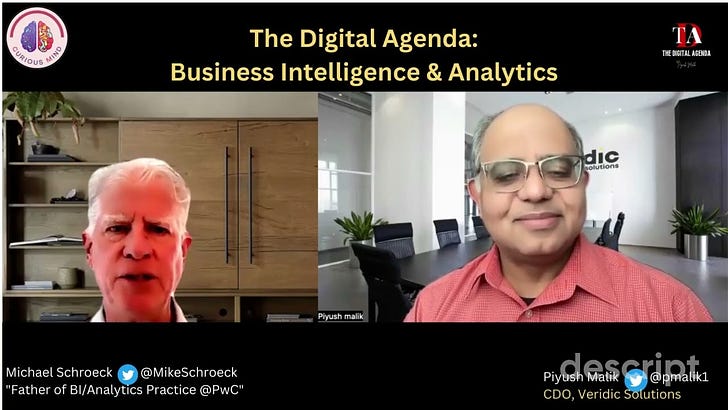






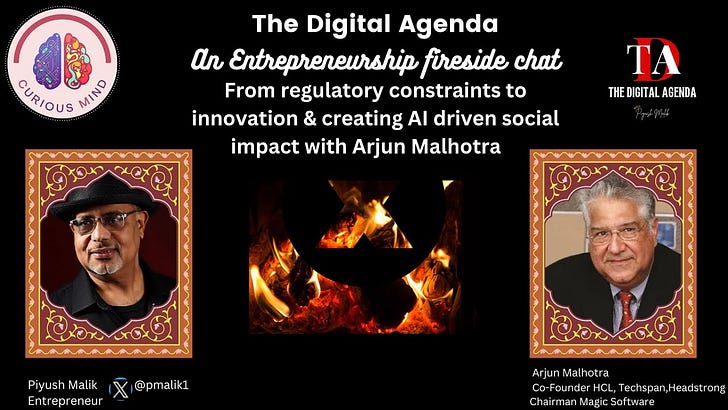

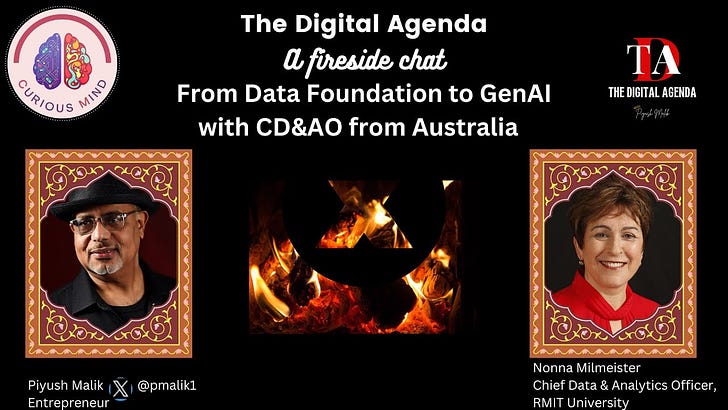
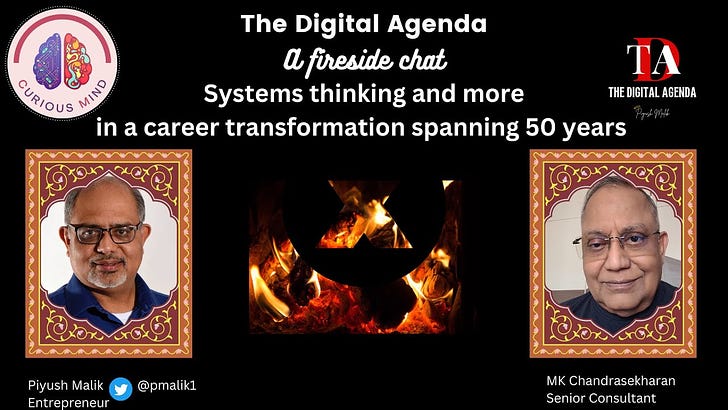
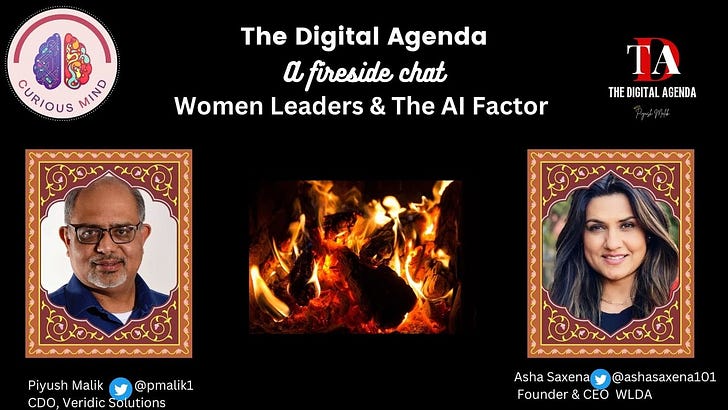
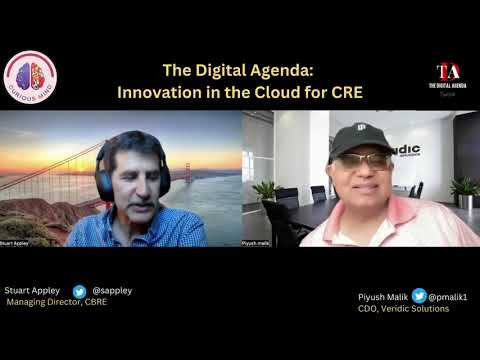
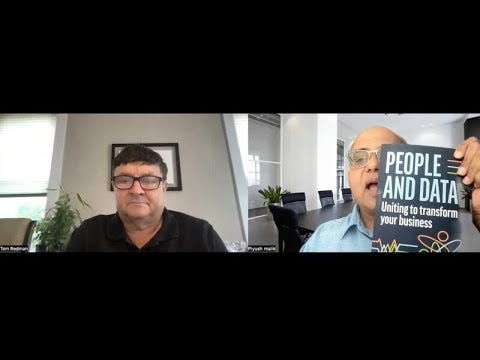
Share this post